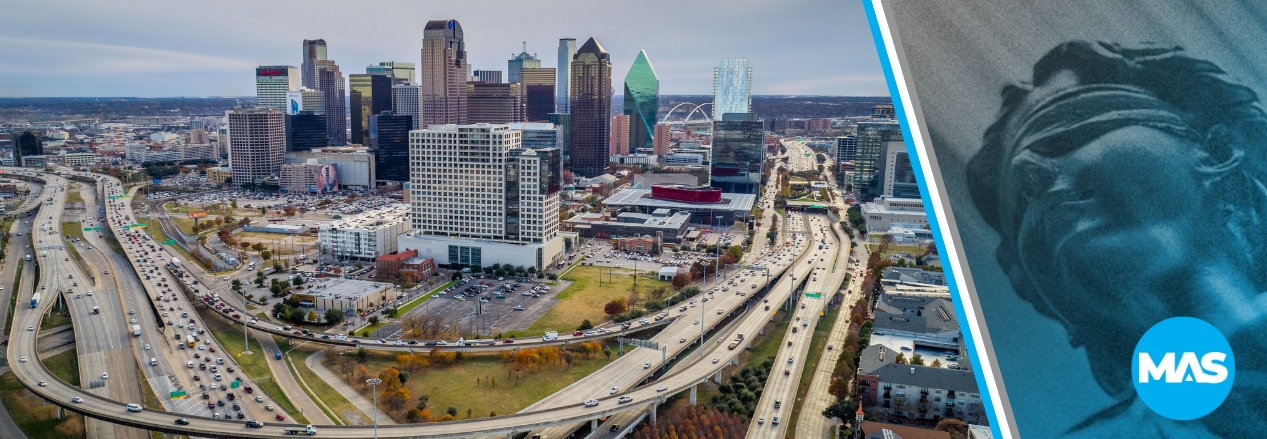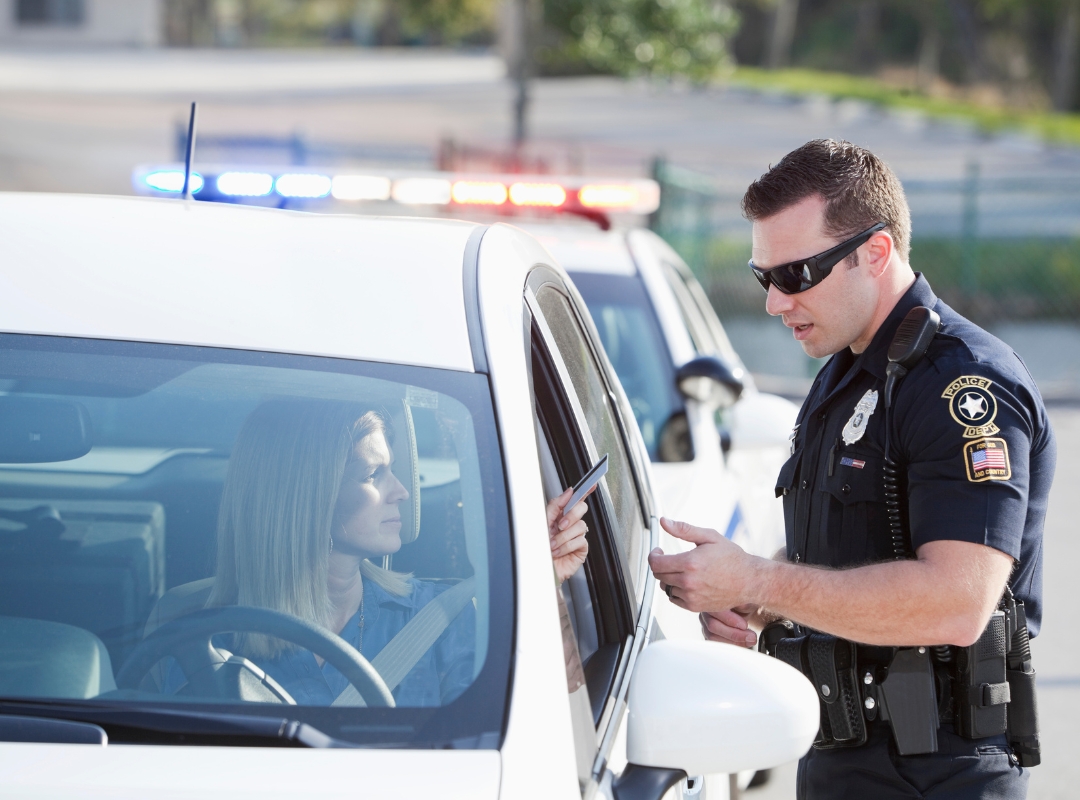
Dallas and Fort Worth, two bustling metropolises in Texas, have earned a dubious distinction: they rank among the worst cities in the United States for driving. According to recent studies and reports, these cities face significant challenges related to traffic accidents, reckless driving, and impaired driving. This blog delves into the statistics, Texas statutes, and the measures being implemented to address these pressing issues.
Assessing Dangerous Drivers: a Forbes Study
A recent report by Forbes Advisor investigated driving risk in the 50 most populous U.S. cities to determine what the ten most dangerous cities were when it comes to their drivers. The report reveals that both Dallas and Fort Worth rank poorly in terms of dangerous drivers, with the cities holding positions 6th and 9th, respectively.
The study employed five key metrics to determine which cities have the worst drivers:
- Number of fatal car accidents. This general measure captures the overall risk associated with driving in a city, and this metric is attributed to 24% of a city’s danger score.
- Number of drunk driving fatalities. This metric specifically assesses the prevalence of alcohol-impaired driving, a significant risk factor, and this measure counted toward 19% of a city’s danger score.
- Number of distracted driving fatalities. The study considers the danger posed by drivers using phones or other devices, and this metric is attributed to 19% of a city’s danger score.
- Speeding-related fatalities. This metric focuses on the heightened danger associated with exceeding speed limits and is attributed to 19% of a city’s danger score.
- Total fatalities per capita. This final metric takes into account the overall human cost associated with traffic accidents in the city and contributes to 19% of a city’s score.
Data for all metrics came from the National Highway Traffic Safety Administration (NHTSA) Fatality and Injury Reporting System Tool, providing a reliable and standardized source.
Contributing Factors to the DFW Rankings
Several factors contribute to the poor driving conditions in Dallas and Fort Worth:
- High traffic volume. As major urban centers, both cities experience heavy traffic congestion, which increases the likelihood of accidents.
- Reckless driving. Speeding, aggressive driving, and road rage incidents are prevalent in these areas. Dallas, in particular, has a high rate of speeding-related fatalities and a concerning number of drivers with previous accidents on their records.
- Impaired driving. DUI incidents are notably high, exacerbating the risk of accidents and fatalities.
Texas Statutes on Driving Offenses
To combat these issues, Texas has stringent statutes and regulations in place:
- DWI (Driving While Intoxicated) charges. Under Texas Penal Code § 49.04, it is illegal to operate a vehicle if you have a blood alcohol concentration of 0.08% or higher. Penalties for DWI offenses can include fines, imprisonment, and license suspension.
- Reckless driving charges. Defined under Texas Transportation Code § 545.401, reckless driving occurs when a person drives with a “disregard for the safety of persons or property.” Convictions can result in fines and imprisonment.
- Speeding tickets. Speed limits are strictly enforced, with penalties for violations ranging from fines to license points.
Local Initiatives & Enforcement

The designation of Dallas and Fort Worth as some of the worst cities for driving in the country is a wake-up call for local authorities and residents alike. To address the driving challenges, local authorities in Dallas are considering several initiatives.
The Dallas Police Department is exploring the use of speed cameras and DWI checkpoints to curb speeding and impaired driving:
- Speed cameras. These devices can automatically detect and record speeding violations, helping to deter reckless driving and improve compliance with speed limits.
- DWI checkpoints. By setting up checkpoints, police can conduct random sobriety checks to catch and deter drunk drivers, thereby reducing DUI incidents.
These measures aim to enhance road safety and reduce the number of traffic-related incidents. By understanding the statistics, laws, and ongoing efforts, residents can also contribute to creating a safer driving environment in Dallas and Fort Worth.
Safe Driving Tips
Drivers can also listen to the following tips to stay safe on the road:
- Focus on the road: Driving requires your full attention. Eliminate distractions and stay alert to your surroundings.
- Engage in safe driving habits:
- Always buckle up. This is the single most effective way to save lives in a crash.
- Obey traffic laws. Speed limits, stop signs, and traffic signals are in place for a reason. Respect them.
- Mind your blind spots. While many vehicles have blind spot sensors, you should still check your mirrors and blind spots when trying to merge or change lanes.
- Maintain a safe following distance. You should leave the substantial space between you and the vehicle in front of you because you will have more time to react should something happen to/with the vehicle in front of you.
- Never drive under the influence. You not only want to avoid breaking the law but also need to have your full faculties to safely drive.
- Adjust your speed for conditions. Slow down in bad weather, heavy traffic, or at night.
- Use your turn signals. Communicate your intentions clearly to other drivers.
- Be courteous. Avoid road rage and aggressive driving.
- Maintain your vehicle. Regularly check tire pressure, fluid levels, and headlights to ensure your car is in top condition.
What to Do If You’re Injured in a Dallas Auto Accident
Being involved in a car accident, especially one that results in injuries, can be a stressful and confusing experience. If you're injured in a Dallas auto accident, some crucial steps to take to protect yourself and your rights include the following:
- Ensure Safety:
- Check for injuries to yourself and others involved.
- Call 911 immediately to report the accident and request medical attention if needed.
- Document the scene:
- If possible, take pictures of the damage to vehicles, skid marks, and the overall accident scene.
- Get information from the other driver(s) involved, including names, contact details, and insurance information.
- If possible, get the names and contact information of any witnesses.
- Seek medical attention:
- You should be seen by a doctor or medical professional as soon as possible, even if you feel okay.
- Keep all medical records related to the accident.
- Protect your legal rights:
- Avoid admitting fault or discussing the accident in detail at the scene.
- Contact a Dallas personal injury lawyer who is experienced in car accidents.
Call (972) 460-9339 to Request a Free Injury Consultation
Since 2000, the attorneys at MAS Law have been serving clients throughout the Dallas-Forth Worth area and have built a strong reputation for providing clients with quality counsel. We are committed to offering comprehensive and reliable representation.
We are trusted by our past clients, who recommend our service because:
- They “love how [we] help you, explain things and are there for all you questions.”
- We handle “everything” from the accident investigation to case negotiations.
- We are “very professional and attentive” and take a client-centered approach to cases.
Contact us today to get started on your case.


